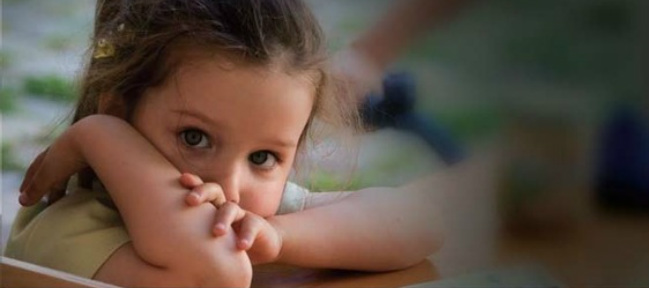|
A certain amount of fear is healthy and understandable. It keeps us and our children out of harm’s way. We teach our children to fear running into a busy street, accepting candy from strangers, swallowing unidentified substances from the medicine cabinet, etc. We are, in essence, teaching them caution, which is quite different from dealing with a youngster who is responding to an imaginary rather than a real danger. Here are some common childhood fears, and ways to go about handling them. Fear of the dark Generally, fear of the dark occurs when the parents insist that the child stay in a totally darkened room at bedtime or when the child wakes up in the middle of the night. Some children are so terrified by the dark that their heartbeats actually increase. Parents need to recognize that the room looks totally different to the child when the lights are out, and should take steps to reassure the youngster even if the fear seems completely irrational to the parents.
Fear of the dentist. Clearly, for adults, this is often an unresolved fear from childhood, since so many adults are fearful of going to the dentist. It is usually provoked in children because they feel they have no control over the situation. It’s a fact of life that children do need to go to the dentist at regular intervals, so their fear must be dealt with and overcome.
Perhaps the kindest thing parents can do when dealing with a child’s fears is to admit their own childhood fears, especially if the parents had similar fears when they were children. The parents can indicate that they understand just how devastating such fears can be and that they stand ready to reassure and comfort whenever the child feels a need. Fear-busting Strategies Regardless of the child’s age, basic strategies for helping children cope with fears and phobias are similar:
Text and photo courtesy of Motivated magazine. Used with permission.
0 Comments
My daughter is almost three years old, and she's started something new: the "Mommy, I'm scared" phase. For example, she has become frightened of dogs—even our docile old family dog—and she asks questions like, "Does the dog have sharp teeth?" and "Do dogs eat little girls?" Even the sound of a dog barking in the distance is enough to send her running indoors. No amount of reassurance seems to help. How can I help my little girl overcome her fears?
Fear can be a serious problem for anyone at any age, but especially for young children because their frame of reference is quite limited and they haven't yet developed the reasoning capability to determine which fears are rational and which are irrational. It takes prayer, patience, understanding, and wisdom on the part of parents to know how to help their children learn to deal with fear. One point to keep in mind is that some fears are normal, rational, and healthy. Some are with us from birth, such as fear of loud noises and fear of heights. Other rational fears are learned through experience. For example, a child who has been stung by a bee is likely to be afraid of bees. Other rational fears are learned through parental warnings, such as fear of hot stoves, sharp knives, and moving cars. On the other hand, irrational fears, such as fear of imaginary monsters, don't have any basis in the material world. Many childhood fears fall somewhere between the rational and irrational, and they are usually linked to a particular phase of the child's mental and emotional development as he or she is exposed to new experiences and learns to reason and exercise imagination. It's very important not to make light of children's fears, as that won't make them any less fearful; it will only add a level of shame and low self-worth to the difficulty they are already facing. To make them feel that it's wrong or that they're being bad when they're afraid, as though they had a choice in the matter, will only compound the problem. The first step to helping children overcome their fears is to take the matter to Jesus in prayer. Ask Him to fill your child with the light of faith to overcome the darkness of fear. Also pray an upbeat prayer with the child, focusing on God's faithful, loving care. Because every child and every situation is different, it helps to ask Jesus to show you what to do to help your child overcome the fear. He can show you the cause of the problem, the best solution, and how to present it to the child. For example, He may show you to relate a similar situation that happened to you when you were small, when everything turned out fine. Or He may tell you to read your child a story in which someone overcame a similar fear. He will probably also remind you to not expect overnight results. Weaning children from irrational fears takes time, but love and prayer never fail. |
Categories
All
Archives
March 2024
LinksFree Children's Stories |



 RSS Feed
RSS Feed
